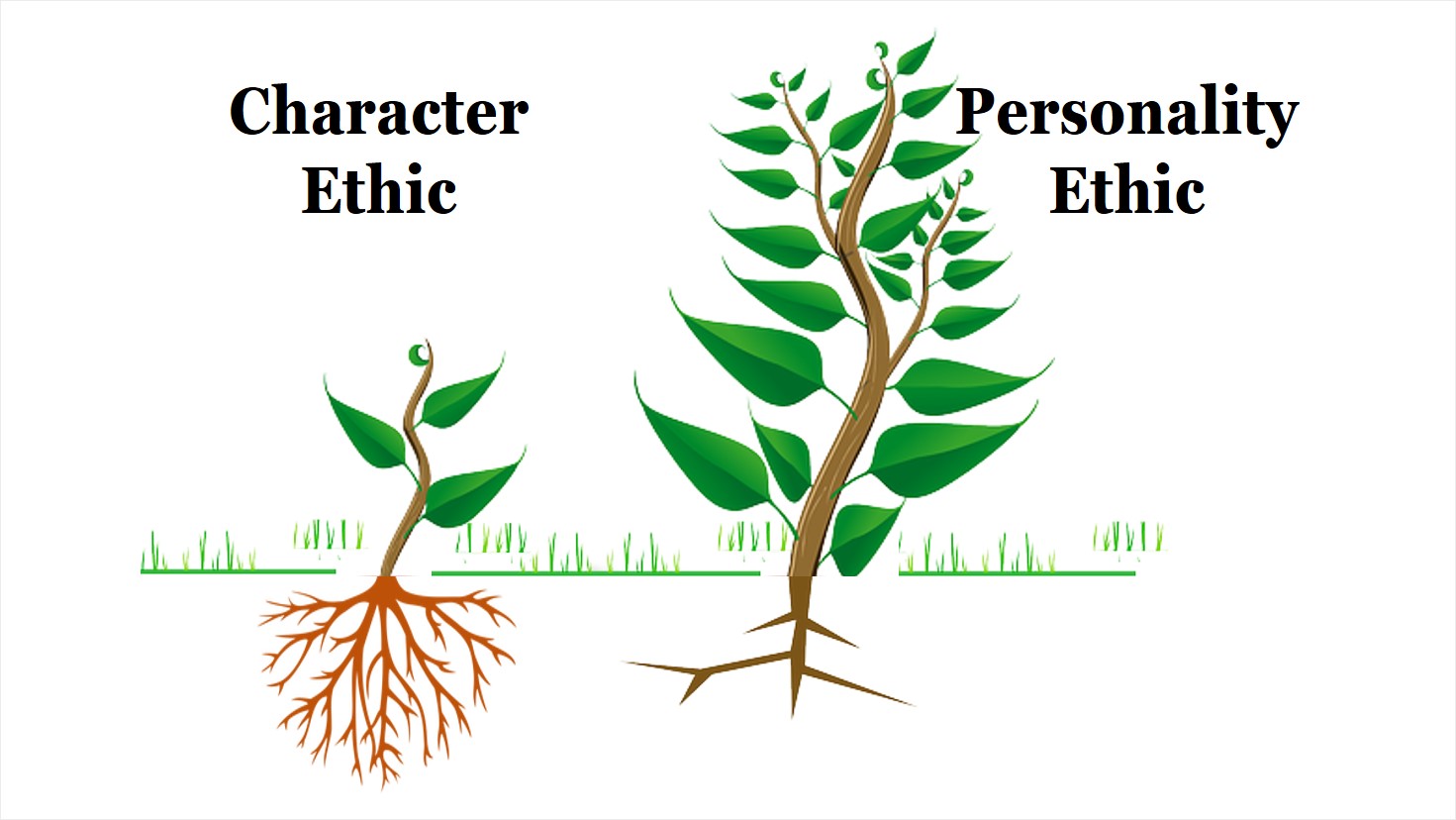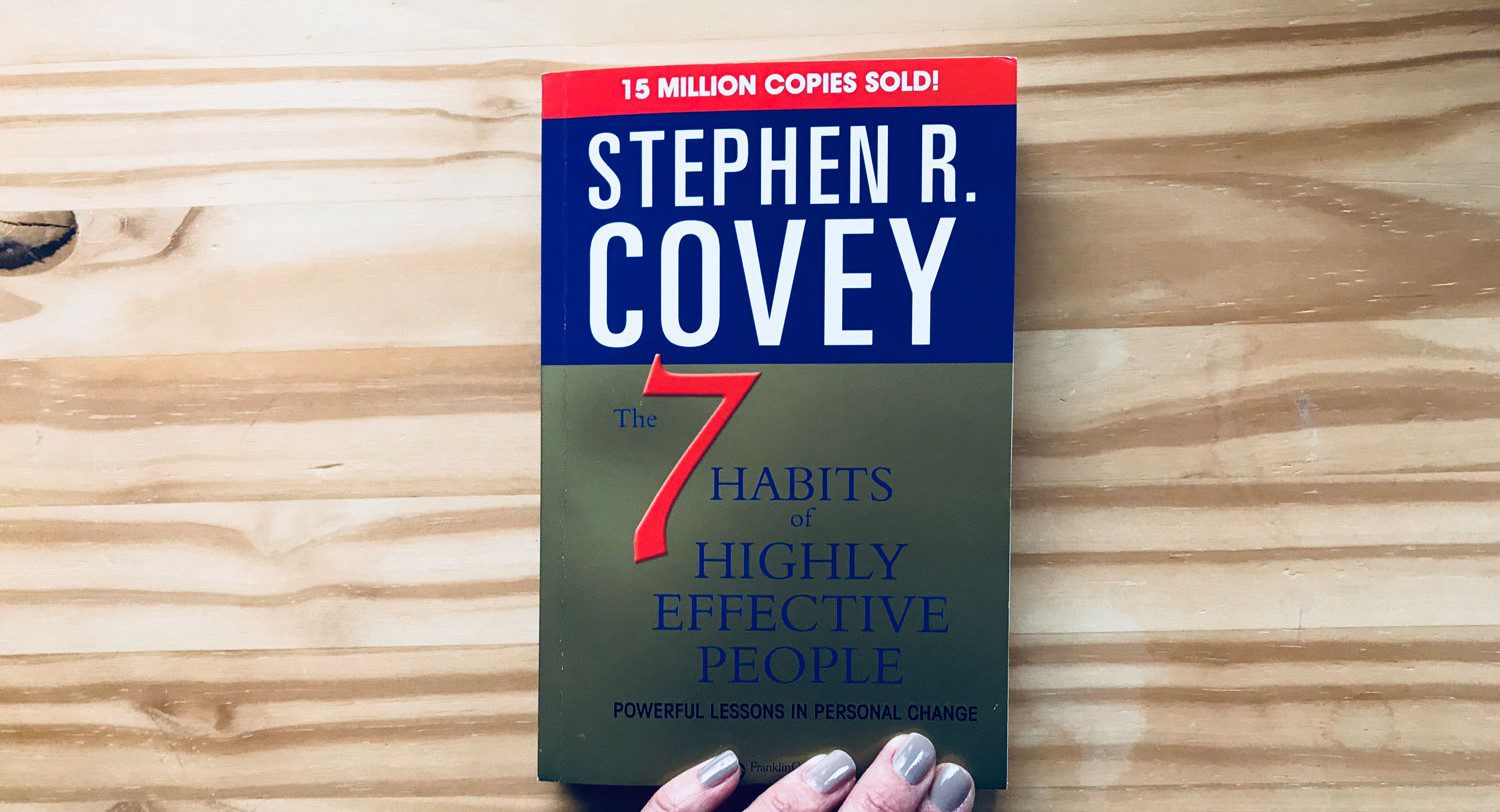What are the habits that make a person highly effective?
Before 1920, people used to attribute their success to things like integrity, humility, fidelity, industry, courage, modesty, what covey calls The Character ethics. However, after 1920, Personality ethics has been named the foundation of success. Public image, behavior, attitude, smiling are referred to as personality ethics. Which are typically quick fixes and superficial.
Covey argues that for long-term success, personality needs to be rooted in character; otherwise, it can be seen as fake. Of course, he doesn’t suggest that personality ethics – personality growth, communication skill, and positive thinking- are not convenient for success; in fact, some are essential. But these are secondary attributes. The primary traits are the character ethic which this book is focused on.


Among the 7 habits, the first 3 habits will shift you from dependence to independence. And the next 3 will turn you from independence to interdependence. While some say dependence is the highest level of effectiveness, covey argues that it is interdependence that moves a person to the peak of effectiveness. Finally, the last habit embraces all the other habits and focuses on enhancing growth.
HABIT 1 – BE PROACTIVE
Do we act or be acted upon?


Sometimes we cannot control the situation, but we can control how we react to that situation. Suppose you have a teacher who you think is not talented. When your result is not acceptable, you blame him. You say, “I wish I had a more talented teacher.”
This is what reactive people do. They always blame the circumstances and outside forces that are out of their control. If you were proactive, you would say to yourself, ” I can be wiser, and I can study from books, the internet, and friends and in so many ways.
Therefore, draw a circle and fill the circle with the things that you cannot control, for instance, weather, political situation, others’ opinions, others’ mistakes, economy, etc. This is the circle of concern. Proactive people ignore this circle. So, draw another circle inside the circle of concern and call it the circle of influence. Fill this circle with the things that you are in charge of. To illustrate, your habits, your skills, your behavior, your reaction, your attitude, etcetera.
Proactive people focus their efforts here on the circle of influence.
HABIT 2 – BEGIN WITH THE END IN MIND
Beginning with the end in mind means to start with a clear understanding of the destination.
Question yourself, why you’re doing what are you doing now?
For the sake of understanding, imagine you are dead and picture yourself at your funeral. Have you got what you wanted in your life? Maybe not. Because what you thought you wanted in your life, such as fame, recognition, money, and asset, may not be what you really desired.
After picturing yourself at your funeral, your definition of success may change.
Maybe you wanted to be remembered as a person who did something for the welfare of society. If that’s the case, then are you doing what you should do now? Or you are just scared of failure or stuck in your comfort zone.
Maybe you wanted to be a good pious person. If that’s the case, then have you thought about how your negative behaviour affects other people?
HABIT 3 – PUT FIRST THING FIRST
What could you do now that would make a tremendous positive change in your personal life?
If I ask you, “What is the most important thing for you now?” Most of us will say studying, learning new skills, exercise for well-being, having good nutrition, and giving time to our relationship and family. None of us will say watching TV or scrolling Facebook. But how many of us are doing what we want to do?
So, we need to get into the habit of putting first things first. Spending time on what really matters. We can use a to-do list on a daily basis to categorize essential tasks. But the best way is to on a weekly basis with your roles.
HABIT 4 – THINK WIN/ WIN
Habit 4 is all about changing perspective about a specific thing: “for me to win, the other person doesn’t have to necessarily lose.”
Imagine I am starting a business, but I have a low budget, and you are a freelancer who doesn’t have enough references on his website. Therefore, you provide free service to my company, and I give you benevolent reference. We both win.
Win/win seeks mutual benefit. We can share the knowledge, help each other, and profit together in business; we both can win.
HABIT 5 – SEEK FIRST TO UNDERSTAND THEN TO BE UNDERSTOOD


The habit itself implies what it means – We first have to try to understand the other person than to be understood. Yet, in everyday life, we do exactly the opposite.
Imagine, You are having a problem with your eyes. So, you go to an optometrist to seek help. The optometrist then hands you his glasses and says, “These glasses helped me for years, and it will help you as well.” You put on the glasses, but it only made your problem worse.
Unfortunately, we do the same thing with our every relationship. Before diagnosing the problem, we hand over a solution. This is why covey says, “Most people do not listen with the intent to understand; they listen with the intent to reply.” We want to win, but eventually, we are losing.
So covey suggests that before giving advice, offering a solution, or interacting with a person effectively, we must understand the other person through emphatic listening. Emphatic listening is the core skill that will help to build this habit efficiently.
HABIT 6 – SYNERGIZE
The whole is greater than the sum of its parts.
For example, humans’ body parts: liver, heart, brain, stomach all are amazing things. Together they create a wonderful creation: humans. One without another, however, is nothing.
Synergy means to produce a compound thing with the interaction and cooperation of two or more than two things. It says that – the integrated force of a group of things is more empowering than that of each working individually.
The first step to synergize is to value are the differences of others. Whenever someone with the same competence and intelligence as yours disagrees with you, remember that there must be something to his disagreement that you don’t understand, and you have to understand that.
HABIT 7: SHARPEN THE SAW
Habit 7 focuses on renewal and enhancing the ability to make all other habits your asset.
Suppose you see a man is cutting down a tree feverishly with a saw. You ask him how much time he has been doing this. The man replies, ” For 5 hours”. You say, “Why don’t you take a break for 10 minutes to sharpen the saw? ” he replies, ” I don’t have much time. I am busy cutting trees”.
This is what we do in our everyday life. However, we have four dimensions of nature, and covey argues, “Each must be enhanced and exercised regularly.”
Physical: Good nutrition, eating well, having sufficient sleep, and exercise regularly will sharpen the physical saw.
Mental: Educating ourselves continuously through reading good books, writing journals, and visualizing help sharpen the mental saw.
Social: In order to sharpen the social saw, one can provide services, seek deeply to understand other people, and contribute something meaningful to society.
Spiritual: Regular meditation, study, communicating with nature will improve spiritual saw.


